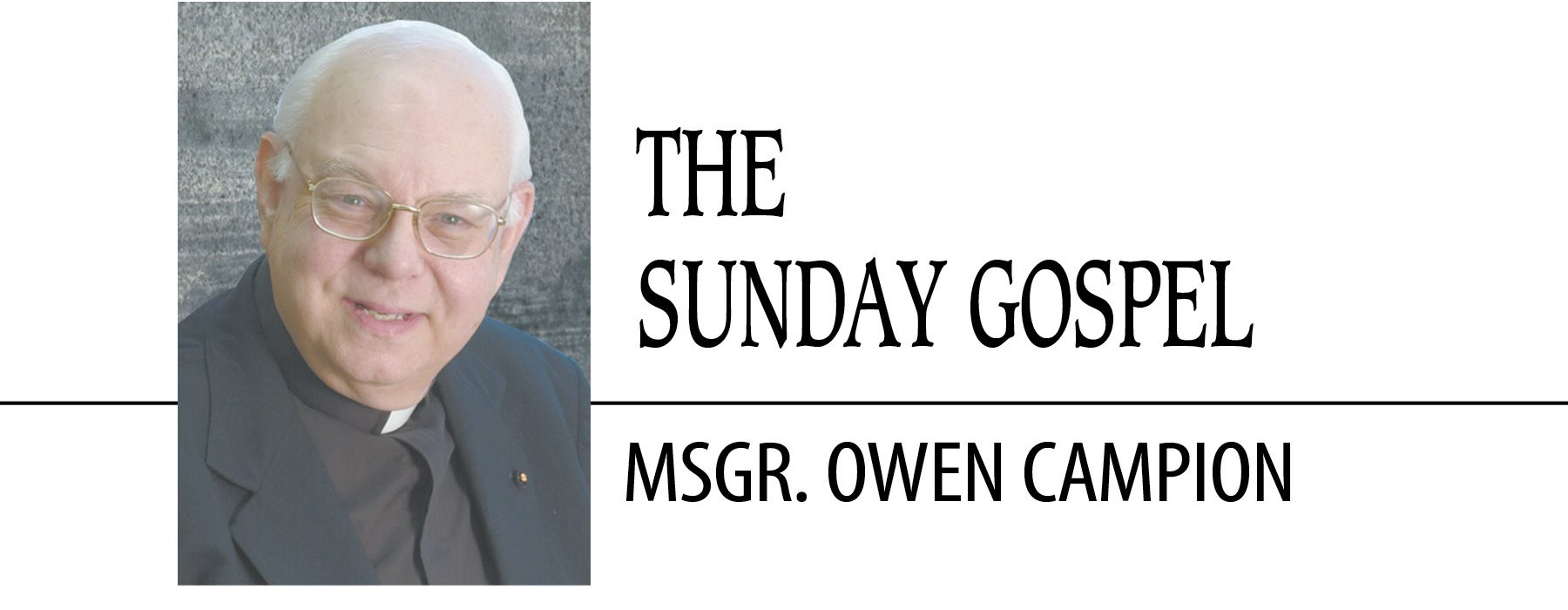January 30, 2021 // The Sunday Gospel
No attachment to sin or evil is greater than the power of God
Fourth Sunday in Ordinary Time
Mark 1:21-28
The Book of Deuteronomy furnishes the first reading for this weekend. Deuteronomy appears in modern bibles as the fifth book in sequence in the Old Testament. It is one of the Pentateuch, the first five books of the Old Testament, all of them attributed to Moses.
In this reading, Moses addresses the chosen people, whom he has led, with God’s help, from Egypt, where they were enslaved. He promises that God will send prophets with whom the people can relate. But if anyone presumes to take the role of prophet upon himself or herself without having been called by God, then this imposter will die.
God takes care of His people.
St. Paul’s First Letter to the Corinthians is the source of the second reading. From the earliest days of Christianity, virginity has been treasured. Christians have never been forbidden to marry, although all Christians are bound to be chaste, according to their state in life. Over the centuries, however, Christians have chosen lifelong virginity for religious reasons.
Corinth in the first century A.D. was a city notorious for its outrageous immorality. It was a busy commercial center. Visitors often availed themselves of the pleasures of the flesh provided in Corinth. Indeed, Aphrodite, the goddess of love and carnal desire, was the city’s special deity.
Paul saw virginity as a powerful Christian value, and from a more pragmatic point of view, he thought that Christians not obligated by marriage and parenthood should devote their time to God’s service.
St. Mark’s Gospel is the source of the third reading. Luke’s Gospel contains an almost exact parallel story. Matthew treats this event only glancingly.
Judaism has never required weekly attendance by Jews at synagogue services. However, going to synagogue to pray together and to learn the teachings of the Torah was definitely a priority for Jews during the time of Jesus, as indeed it is even among Jews today.
That Jesus went to the synagogue, and on the Sabbath at that, reveals how seriously the Lord took the Law of Moses.
As Jesus spoke, the people were spellbound at His knowledge of things relating to God. It is important to note here that the man in the story recognized Jesus as the “Holy One of God.” Furthermore, the man believed Jesus has the power to do anything.
The Lord’s power pierces the darkness even of Satan. Jesus orders the unclean spirit to leave the man, and the unclean spirit obeys.
Again, the people are amazed. The message, however, is not in their amazement, but that Jesus could command the unclean spirit and be obeyed, and that the man, albeit harboring this evil spirit, recognized Jesus as the Son of God. No bondage to sin or evil can overcome the power of God.
Reflection
Few people today say that they, or great numbers of people, are “possessed by the devil,” although the Church teaches that such possessions occur.
All people have “unclean spirits” within them, since everyone sins and sin is the mark of the devil’s involvement — to some extent — in any person’s spiritual life.
People may be aware of how and when they turn away from God and harm themselves or others. The allurement of sin overpowers them, as it overtook people in wide-open Corinth. For many, this realization produces the cynical hunch that virtue is impossible for them to attain. They are mistaken.
For them, these readings are especially comforting and encouraging. God will never leave us. Such was the promise of Moses and of Paul. The Son of God can conquer any evil and dull any temptation, if asked. No sin can obscure the reality of the Lord. His light shines. His strength is mighty.
The best news. Delivered to your inbox.
Subscribe to our mailing list today.






